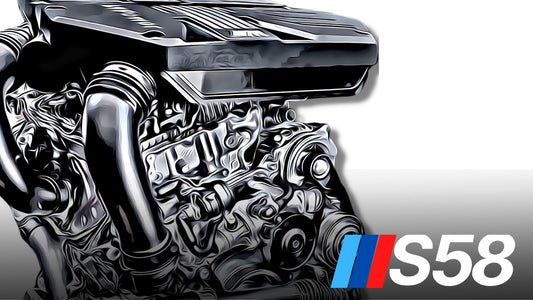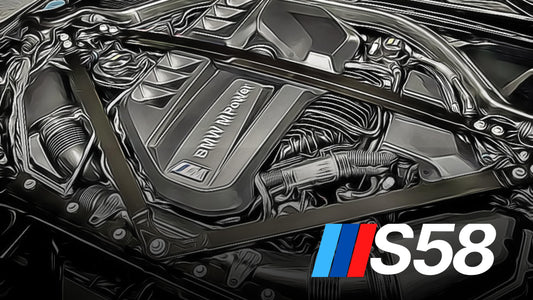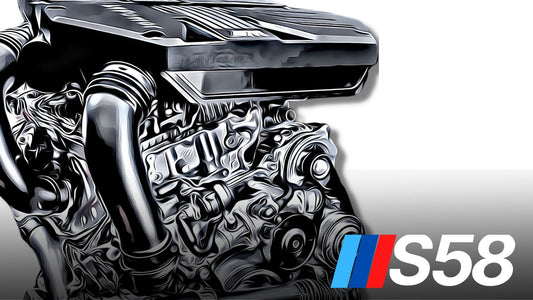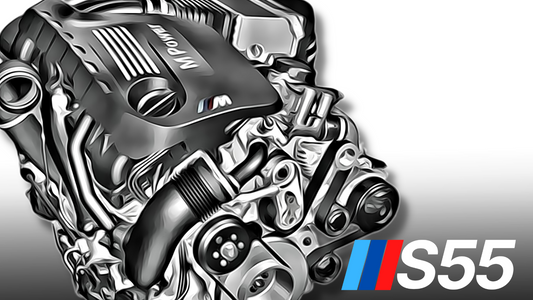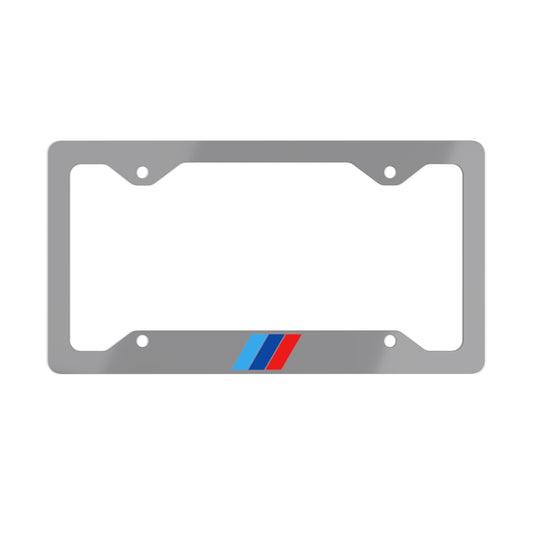The BMW S58 engine is a tour de force in the world of automotive engineering. Introduced as the heart of the G80 M3 and G82 M4, and extending its prowess to the X3 M and X4 M models, this engine has been turning heads since its debut. But what truly sets the S58 apart is its remarkable tuning potential. Let's dive into the aspects that make the S58 a tuning aficionado's dream.
Core Specifications
The S58, a successor to BMW's B58 and S55 engines, is a high-performance unit that pushes the boundaries of what's possible with a production engine. Here's a quick overview of its core specifications:
- Engine: BMW S58
- Displacement: 2993cc (3.0L)
- Configuration: Inline-6
- Aspiration: Twin mono-scroll turbochargers
- Compression Ratio: 9.3:1
- Bore x Stroke: 84mm x 90mm
- Engine Block: Aluminum closed-deck
- Engine Head: Aluminum with 3D-printed core
- Rotating Assembly: Forged crank, rods, and pistons
- Redline: 7200 RPM
The Tuning Potential
1. Foundation for High Power Output
The closed-deck block design of the S58 provides exceptional strength, while the aluminum construction keeps weight down. The choice of materials and construction techniques makes this engine both robust and responsive, an ideal combination for tuning.
2. Advanced Turbocharging
With twin mono-scroll turbochargers, the S58 benefits from reduced turbo lag and improved throttle response. This design allows for efficient exhaust gas flow, providing a strong foundation for tuning endeavors aimed at boosting power.
3. Lower Compression Ratio
At 9.3:1, the S58's compression ratio is tailored for turbocharged applications. This lower compression is conducive to high-boost scenarios, allowing tuners to safely increase boost levels without the risk of detonation, a common challenge in high-compression engines.
4. High-Redline Performance
A redline of 7200 RPM for a turbocharged inline-6 is noteworthy. This high redline indicates the engine's ability to handle stress and perform consistently at higher RPMs, a critical factor for tuning and performance driving.
Real-World Tuning Results
The real testament to the S58's tuning potential lies in the numbers it has been achieving in the real world. Early tuning efforts have already shown remarkable results:
- Tuners like RK Tunes have pushed the S58 in the G80 M3 to an impressive 670 whp with basic modifications like JB4 and E85 fuel.
- Advanced mods have seen nearly 700 whp on stock turbos, indicating the high resilience of the engine's internal components.
- In more extreme cases, the engine has been pushed beyond the 1000-hp mark on engine dynos, demonstrating the S58's capability for high-power applications.
Bolt-On Modifications: The First Step
For enthusiasts looking to enhance their S58's performance, several bolt-on modifications can be considered:
- Intake Upgrades: Optimizing airflow with performance intakes can provide modest power gains and improved throttle response.
- Downpipes: Upgrading to catless or high-flow downpipes can significantly reduce backpressure, improving turbo spool time and overall engine efficiency.
- Tuning Solutions: Piggyback tunes like the JB4 or custom ECU remapping can significantly increase horsepower and torque figures.
The S58's Future in Tuning
With the future of internal combustion engines uncertain, the BMW S58 might represent one of the pinnacles of BMW's gasoline engine development. Its blend of advanced technology, robust construction, and extraordinary tuning potential positions it as a standout choice for both enthusiasts and professional tuners.
The S58 engine is not just a power unit; it's a statement from BMW—a statement of performance, potential, and a tribute to the internal combustion engine. Whether you're an avid BMW fan or a tuning professional, the S58 offers a thrilling platform for exploration and performance enhancement. As we look ahead, the S58 is poised to leave a lasting legacy in the world of automotive tuning.



